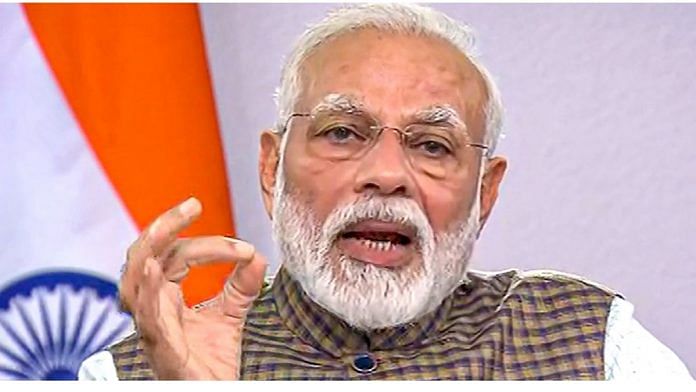The flashy $265 billion figure Prime Minister Narendra Modi announced in his televised address Tuesday wasn’t all new spending. It included the $22.5 billion of fiscal support — mainly cash payments for the poor — announced in March as the country was entering total lockdown. The central bank’s funding-for-lending and other liquidity measures have also been counted to pad the headline number.
All told, Modi’s coronavirus package adds up to 10% of India’s gross domestic product. Roughly half of it is already in the rear-view mirror, while victory over the pandemic and a full reopening of the economy remain elusive. Of the remaining amount, about $40 billion would be government-guaranteed credit to small firms. Another $10 billion is earmarked to backstop shadow banks, according to measures Finance Minister Nirmala Sitharaman rolled out Wednesday. Add the $12 billion she promised for power utilities to clear their bills to producers, and it appears that India is trying to reflate a shrinking $2.7 trillion economy with only $62 billion in freshly committed resources.
This could yet double, as roughly a quarter of Modi’s package is still to be unveiled. More steps are on their way, the finance minister said. Among other measures announced Wednesday some, such as relaxing the classification of micro, small and medium-sized enterprises, were overdue. However, scrapping global tenders for government contracts worth $25 million could further tarnish India’s checkered corruption record.
A couple of large proposals aren’t included in my stimulus tally. A $6.5 billion fund to provide equity funding to smaller businesses seems both too complicated to set up in the short run and too prone to cronyism when it finally gets going. A separate $2.5 billion plan to give businessmen debt they can plow as equity into stressed companies may be easier to execute, though private-sector lenders may not have the risk appetite to push the product.
Also read: Modi govt stimulus should’ve focused on boosting demand, not just liquidity, analysts say
As I have said before, a government guarantee for subsidized advances to small firms is a good idea. Allowing even struggling non-bank financiers to make these loans should help the plan reach through to smaller cities and towns. However, for the stalled credit engine to restart, firms need both new orders and the assurance of timely payments. New Delhi is promising to clear its own payments fast, but that won’t be enough as long as India’s 28 states, at the forefront of battling the pandemic, are strapped for cash while struggling with a migrant worker crisis on top of a public health catastrophe.
As for the credit guarantee for shadow banks, overly centralized decision-making could get in the way. Even before the crisis, funding was drying up for these lenders. Now, forced to offer repayment moratoriums to their borrowers, they’re in dire straits, lacking the staying power that banks get from deposits.
State support for their fundraising supplies a crucial missing ingredient in India’s financial system: trust. However, if every guarantee proposal has to wait for the Finance Ministry’s approval, then the lifeline may arrive too late to prevent a credit contagion. Losing time to bureaucratic foot-shuffling is not a risk that India can afford when most activity is still shut and 27 million young people lost their jobs in April alone.
The $62 billion of spending won’t be enough. In all probability, the economy will still shrink. But even if fired first and aimed later, the fiscal bullets might still influence the depth and duration of the recession. After all, sovereign guarantees will be invoked only when small businesses or shadow financiers go belly up after taking the money. The faster India can get lenders to push money out the door, the lower that risk will be. – Bloomberg
Also read: Fiscal damage from Modi govt’s big stimulus package to be less than Rs 50,000 crore this year




Nahin, Janaab, that is not good advice. Always value the hunter who brings down a deer with a single clean shot.